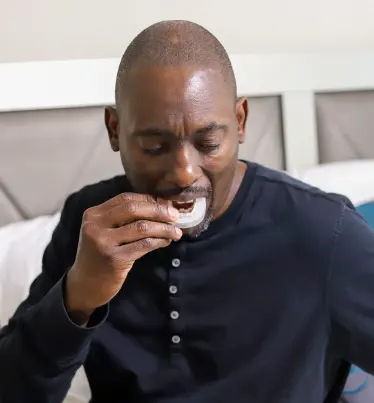Have you ever experienced days where your mind feels clouded, and you struggle to concentrate or remember even simple things? This mental fog, often referred to as "brain fog," is a common complaint, but did you know that it can be linked to a sleep disorder known as sleep apnea?
Understanding Sleep Apnea
Sleep apnea is a sleep disorder characterized by recurring interruptions in breathing during sleep. These interruptions can last for a few seconds to a minute and may occur multiple times throughout the night. The most common type of sleep apnea is obstructive sleep apnea (OSA), where the airway becomes partially or completely blocked during sleep, leading to decreased airflow and, consequently, oxygen deprivation.
Brain fog is a term used to describe a state of mental cloudiness or cognitive impairment. People experiencing brain fog often report difficulty with concentration, memory, decision-making, and overall mental clarity. It can be frustrating and disruptive to daily life, leading to reduced productivity and increased stress.
Brain fog can be caused by various factors, such as stress, lack of sleep, dehydration, and nutritional deficiencies. It's essential to understand that brain fog is often a symptom rather than a condition itself. Identifying the underlying cause is crucial for effective management.
One of the primary reasons sleep apnea can lead to brain fog is the repeated sleep disruptions it causes. Every time an apnea event occurs, the affected individual briefly awakens, even if they don't remember it. These constant awakenings disrupt the normal sleep cycle, preventing individuals from reaching the deep, restorative stages of sleep.
Moreover, the lack of oxygen during apnea events can have profound effects on brain function. The brain relies on a constant supply of oxygen to function correctly, and even brief drops in oxygen levels can impact cognitive abilities.
Sleep apnea often results in chronic sleep deprivation, as affected individuals never truly achieve the restorative sleep they need. This continuous lack of sleep can lead to persistent brain fog and other cognitive impairments.
Another factor connecting sleep apnea and brain fog is excessive daytime sleepiness. When individuals with sleep apnea experience constant awakenings during the night, they may feel drowsy and fatigued during the day. This daytime sleepiness can exacerbate brain fog, making it even more challenging to stay focused and alert.
If you suspect that sleep apnea is the cause of your brain fog or if you have other sleep-related symptoms, it's essential to seek a diagnosis from a healthcare professional. Diagnosis often involves a sleep study, where your sleep patterns and oxygen levels are monitored.

Fortunately, there are effective treatments for sleep apnea. Lifestyle changes, such as weight loss, positional therapy, and avoiding alcohol and sedatives before bedtime, can help. Continuous Positive Airway Pressure (CPAP) therapy, which involves using a machine to deliver a constant stream of air pressure to keep the airway open, is a common treatment for moderate to severe sleep apnea.For some, surgery may be necessary to address anatomical issues that contribute to the condition.While,here at Quality Sleep solutions; we provide a custom-fit FDA cleared oral appliance for treating sleep apnea. The mouthpiece will adjust your lower jaw and your tongue to help keep your airways open while you sleep.
Get Answers